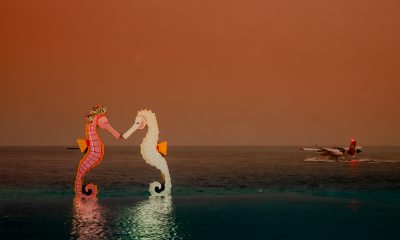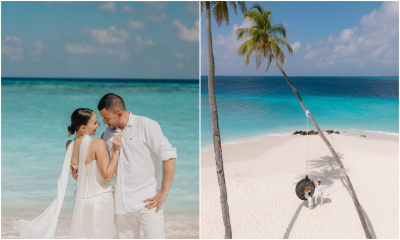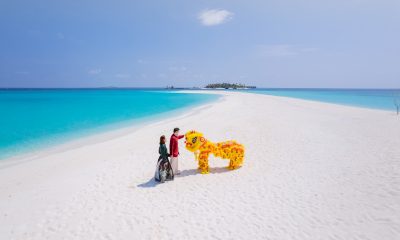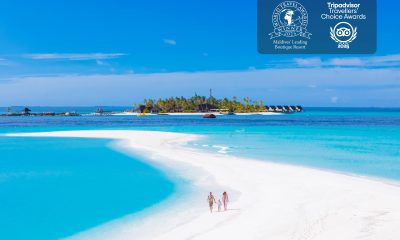Action
Fushifaru Maldives revives tradition, to host coconut palm climbing competition

Climbing coconut palms was a staple skill amongst early Maldivians to gather coconuts and palm fronds for making everything from twine and baskets to mats and fans and to harvest fruits, leaves and spices that typify traditional Maldivian cuisine.
But like many other traditions, this important cultural activity has been lost to the ages; in fact, it hasn’t been practiced at a national level in years!
That’s about to change, as Fushifaru Maldives, a boutique resort known for offering a collection of indigenous Maldivian experiences to its guests, plans to host Lhaviyani atoll’s very first coconut climbing competition on February 28.
“We are extremely excited to be reviving this Maldivian tradition that hasn’t taken place since 1985,” an announcement by the resort read.
To celebrate this revival of tradition, Fushifaru is inviting participants from different resorts around Lhaviyani atoll. Sponsors are also invited to take part in this special event.
The winner of the competition will win a cash prize and a free stay for two at the resort.
“We can’t wait to celebrate our amazing Maldivian culture by bringing back one of our fantastic traditions. Not only will it be an occasion to remember, but it will also be a fantastic opportunity to connect with colleagues from other resorts in our beautiful Lhaviyani atoll,” the announcement read.

Only a 35-minute breathtaking seaplane flight away from Velana International Airport, Fushifaru is nestled between a national Marine Protected Area and three of the Maldives’ most iconic dive sites. Fushifaru is a with an endless promise of adventure, excitement, discovery and serenity all in one diverse landscape.
Merging quintessential Maldivian design with modern aesthetics, this boutique Maldivian chic resort’s 49 Beach and Water Villas exude a sense of cosines yet luxurious in space and amenities. Each of the villas features open-air bathrooms with indoor and outdoor showers, private verandas with dining areas and breath-taking views of the surrounding area – some villas feature private plunge pools.
Dining experiences focus on regional and international flavours to suit every taste and dietary requirement. Scrumptious breakfast buffets and palate pleasing international cuisine are offered at Korakali whilst flavourful Asian delicacies and mouth-watering varieties of freshly caught seafood can be savoured at Raakani. Signature cocktails and detoxtails are complemented by the best sunset views on island whilst lounging by the pool at Fanihandhi. A range of international dishes and snacks can be served straight to the privacy of your villa, 24 hours.
Above the waterline — to up the ante on adventure, a fully-equipped gym overlooks the Indian Ocean, whilst a multi-sports court hosts regular matches between residents and guests. Alternatively, take your game to the water with jet skis, kayaks and catamarans. Off-island visits include the largest tuna canning factory in the Maldives or numerous social and sustainable activities.
Below the waterline — Fushifaru Kan’du, a national Marine Protected Area home to three iconic dive sites including the renowned Fushifaru Thila, is teeming with marine life, unique cave formations and a marine cleaning station and sits right beside the resort. A true haven for diving enthusiasts and snorkelers alike.
Private wedding celebrations, picnics and desert island getaways are available at the resort’s own sandbank – only a few metres away in a crystal clear turquoise lagoon.
Action
Sun Siyam Olhuveli invests in staff wellbeing with upgraded sports facilities
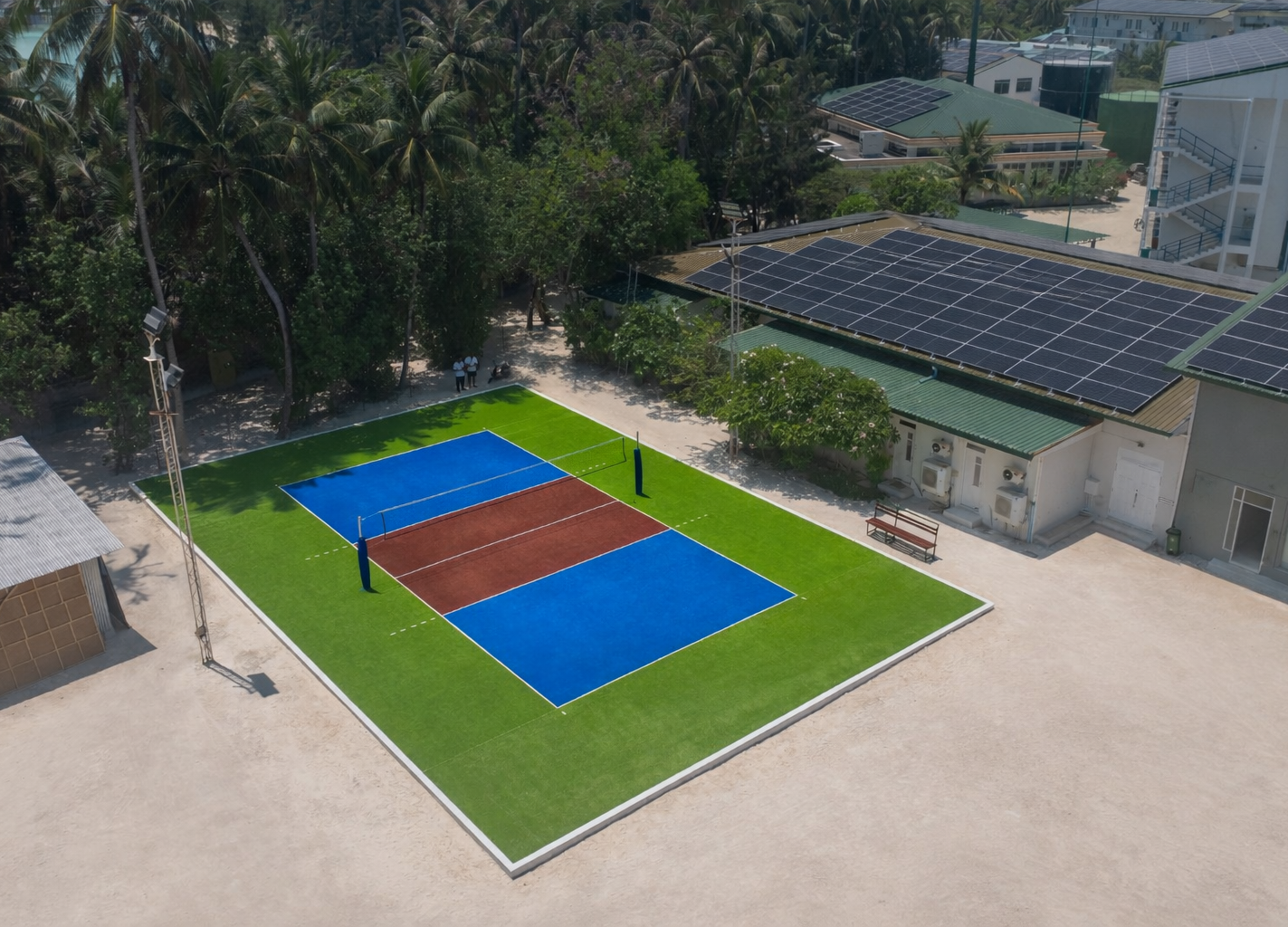
Sun Siyam Olhuveli has unveiled newly upgraded volleyball and futsal grounds for team members, reaffirming its commitment to employee wellbeing while advancing responsible, future-focused operations. The renovated volleyball grounds were officially inaugurated on 14 February, while the upgraded futsal ground opened earlier this year—together creating dedicated spaces for recreation, connection, and healthy competition across the island.
Designed to encourage regular physical activity and camaraderie beyond the workplace, the improved sports facilities represent a thoughtful investment in social infrastructure. They reflect a belief that wellbeing is fundamental to long-term performance, nurturing morale, teamwork, and a strong sense of belonging among team members.
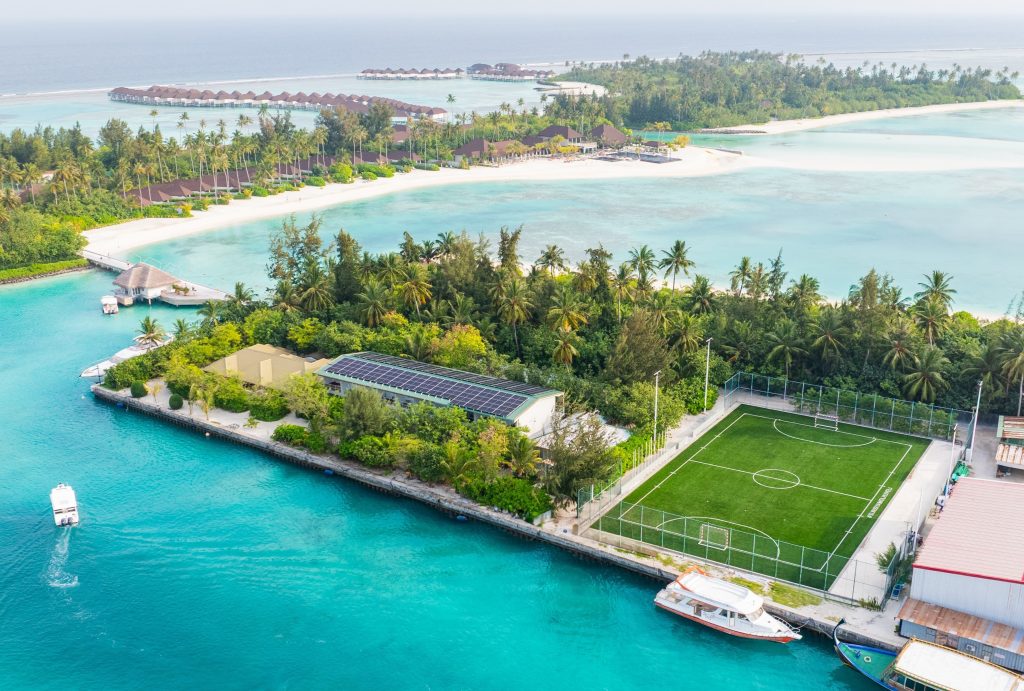
Alongside these developments, the resort has implemented NO BIN DAY every Tuesday, a practical initiative aimed at minimising food waste across operations. By encouraging mindful planning and responsible consumption, the initiative challenges teams to rethink habits around food—transforming sustainability into a shared, everyday discipline.
“Taking care of our people and the environment must go hand in hand. By investing in spaces that support our team’s wellbeing and introducing simple disciplines like NO BIN DAY, we are building a culture where responsibility is lived every day—naturally, collectively, and with purpose,” said Hassan Adil, General Manager of Sun Siyam Olhuveli.
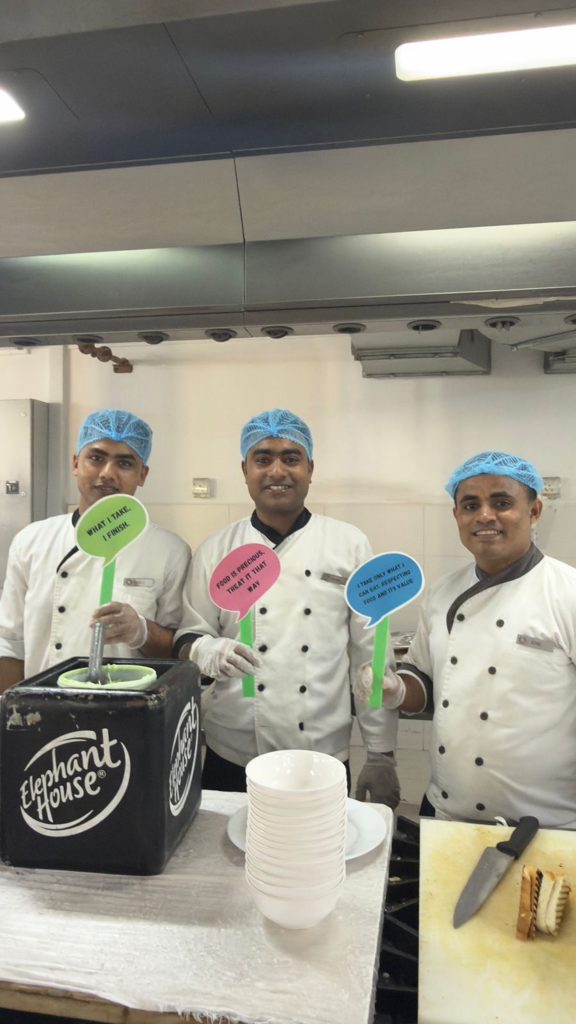
Both initiatives form part of Sun Siyam Care, the group’s corporate social responsibility platform, and align with the Social Infrastructure and Responsible Consumption and Production pillars under the GDS framework. Together, they reflect a people-first approach to sustainability—where everyday actions create lasting impact for teams, operations, and the wider community.
Sun Siyam Care is committed to creating a positive impact for people, communities, and the environment through responsible operations, social investment, and long-term sustainability actions across its destinations in the Maldives and Sri Lanka.
Guests are encouraged to learn more about these initiatives by visiting the Sun Siyam Care website at sunsiyam.com/sun-siyam-care.
Action
Sheraton Maldives Full Moon celebrates sixth anniversary of Reefscapers collaboration
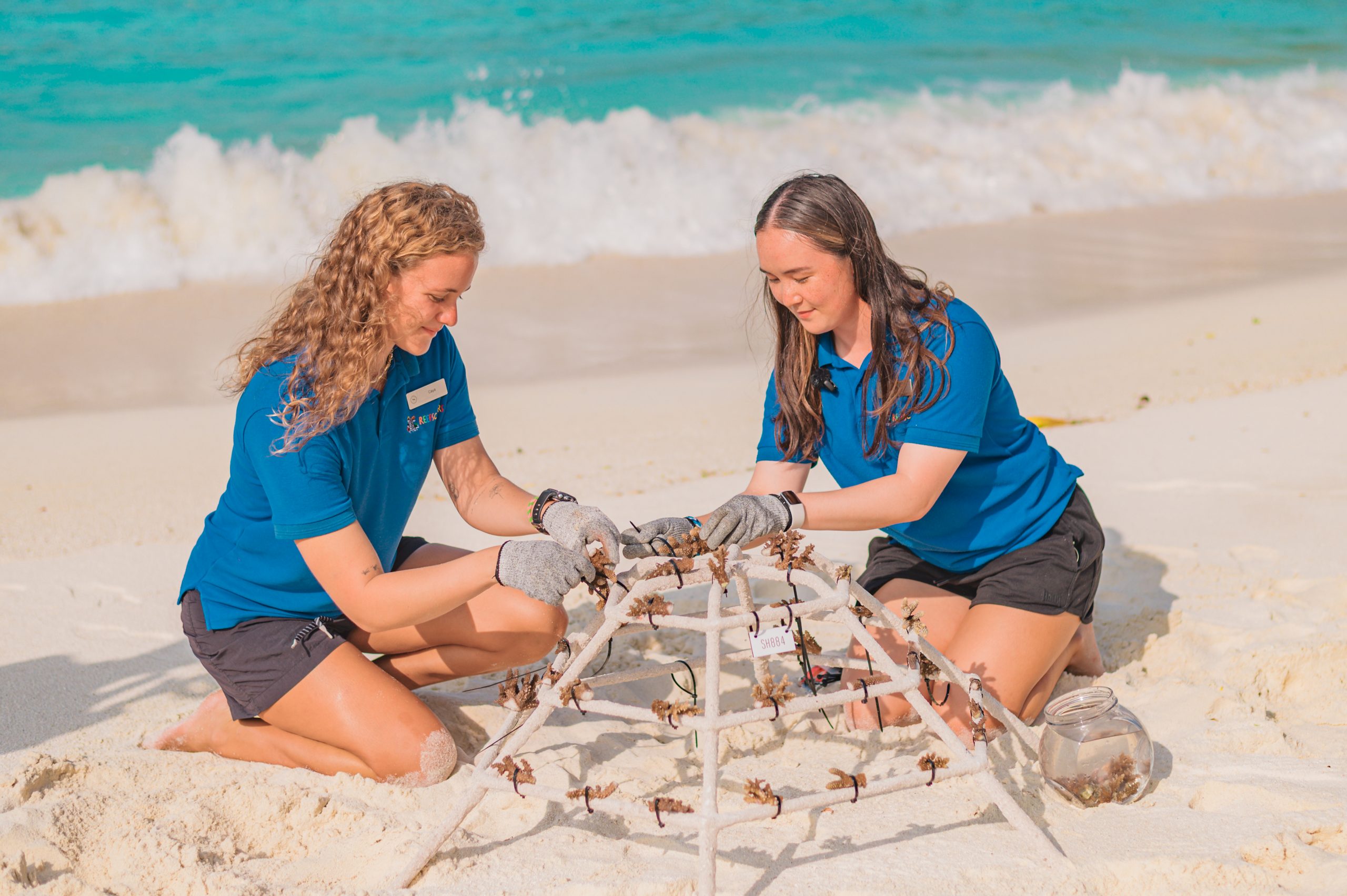
Sheraton Maldives Full Moon Resort & Spa marks the sixth anniversary of its partnership with Reefscapers on February 19, 2026, reaffirming its commitment to protecting and restoring the Maldives’ fragile reef ecosystems. Since launching the partnership in 2020, the resort and Reefscapers have worked together to restore coral habitats, support marine biodiversity, and engage guests in meaningful conservation experiences. The milestone also marks one year since the successful relocation of approximately five tons of coral to the resort’s house reefs — one of the partnership’s most significant conservation initiatives.
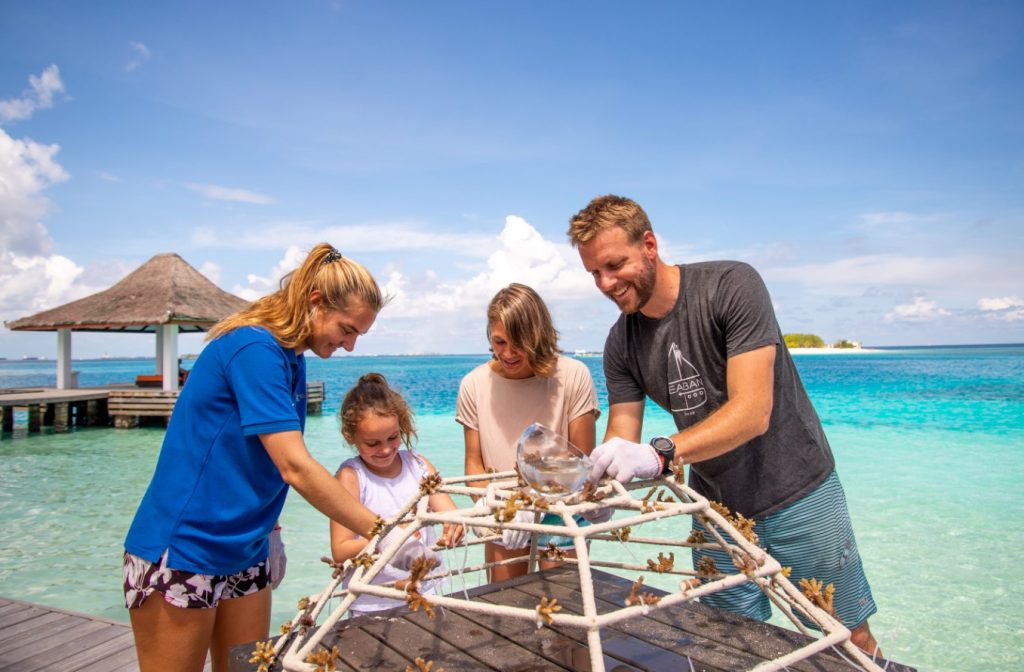
Over the past six years, the partnership has become a defining pillar of the resort’s sustainability journey, blending scientific restoration with purposeful guest engagement. To date, the initiative has resulted in the planting of 898 coral frames, supporting approximately 33,000 coral colonies now growing across the restoration sites. Through coral propagation, reef monitoring, and awareness programmes, these efforts continue to regenerate reef structures while deepening understanding of the essential role coral ecosystems play in sustaining marine life and protecting coastlines. Each thriving coral frame reflects a shared dedication to preserving the natural wonders that make the Maldives one of the world’s most extraordinary marine destinations.
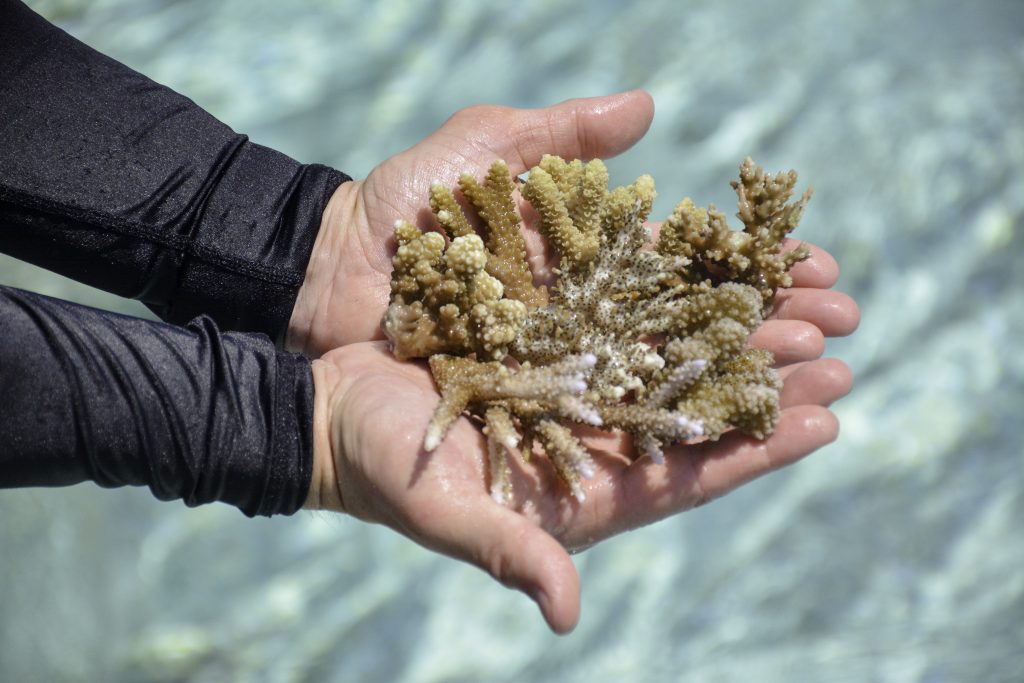
“What makes this partnership special is seeing how small, consistent actions turn into real change underwater. Watching the relocated corals settle, survive, and begin to grow over the past year has been incredibly rewarding for us and the guests who return and witness how they’ve helped restore a living reef,” shares Katelyn, the resort’s Marine Biologist.
A defining achievement of the collaboration has been the coral relocation project, which carefully transferred coral colonies from Ras Malé, also known as the Maldives Eco City, to the resort’s dedicated restoration site, safeguarding them from potential threats linked to land reclamation activities in the Fushi Dhiggaru Lagoon. One year on, these corals continue to flourish beneath the surface, strengthening reef resilience and contributing to the long-term health of the surrounding ecosystem.
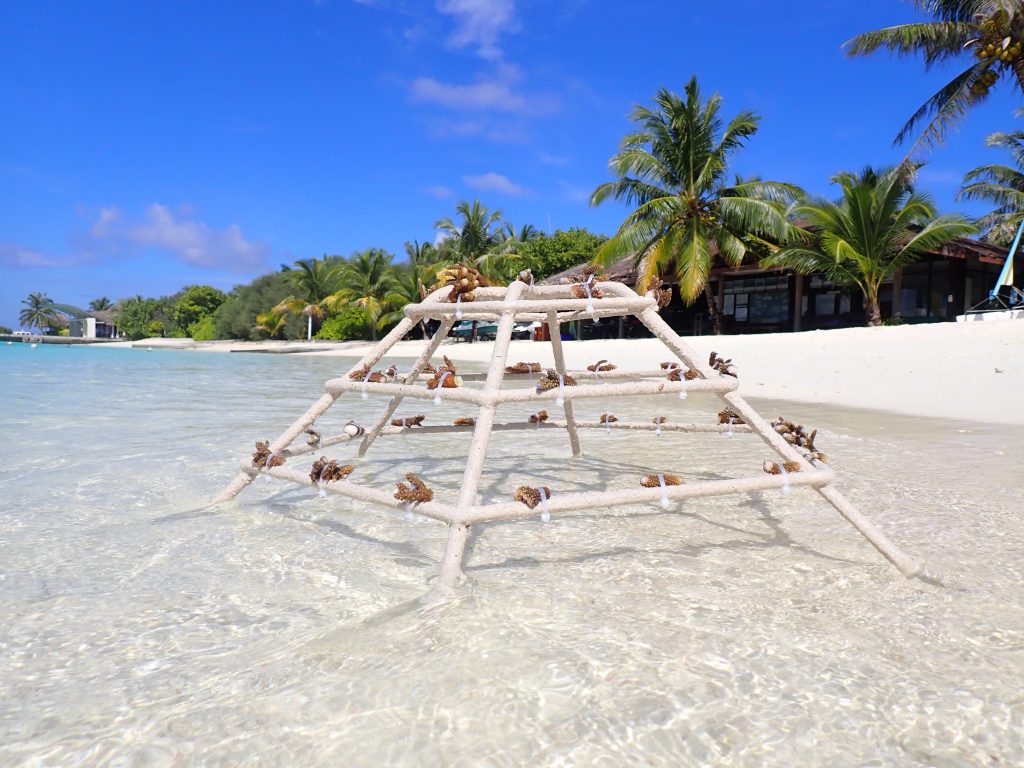
At the heart of the partnership lies the resort’s Adopt a Coral programme, part of the Good Travel with Marriott Bonvoy initiative, which encourages guests to travel with intention through meaningful environmental experiences. Through this hands-on activity, visitors can adopt and name a coral frame while learning directly from marine experts about coral ecology and the importance of protecting marine habitats.
To deepen this connection beyond the stay, guests receive growth updates on their adopted corals every six months, allowing them to follow the progress of their living contribution to the reef. As these corals grow over time, they become enduring symbols of renewal and shared responsibility, transforming a holiday memory into a lasting environmental legacy, and reflecting how travel can positively support local ecosystems and communities.
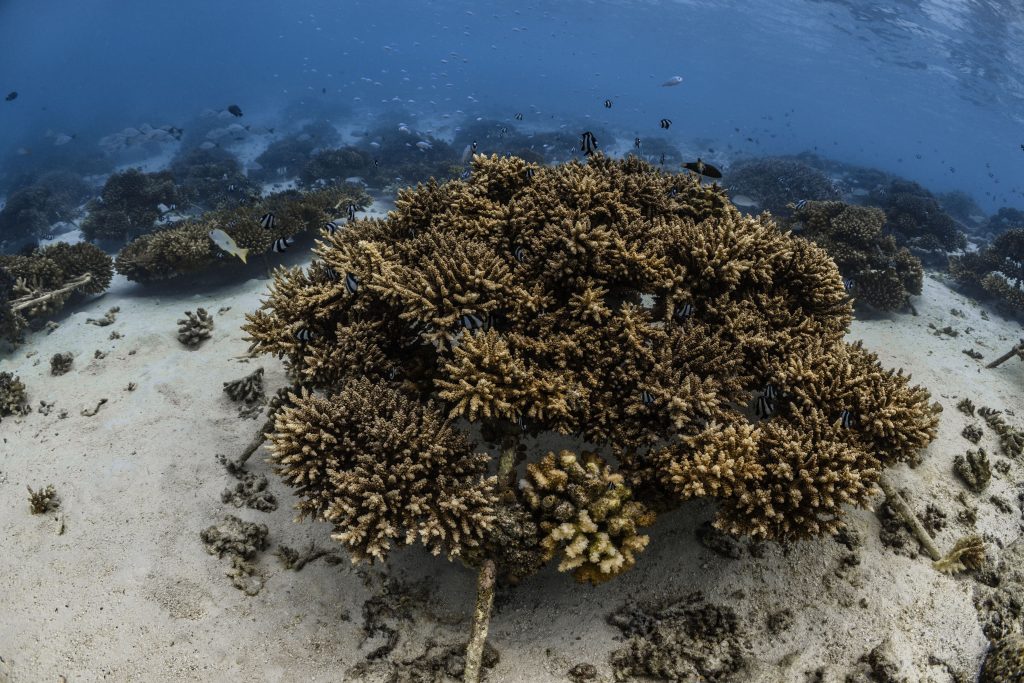
“Our island is surrounded by a remarkable marine environment, and protecting it is a responsibility we take seriously. Our partnership with Reefscapers reflects our belief that hospitality should go hand in hand with stewardship. Seeing the reef restoration progress over the past six years, and the involvement of our guests and associates in that journey, makes this anniversary especially meaningful for all of us,” comments Greg Allan, General Manager of Sheraton Maldives Full Moon Resort & Spa.
Through its continued collaboration with Reefscapers, Sheraton Maldives Full Moon Resort & Spa remains dedicated to advancing marine conservation while creating purposeful guest experiences rooted in sustainability, education, and connection to nature.
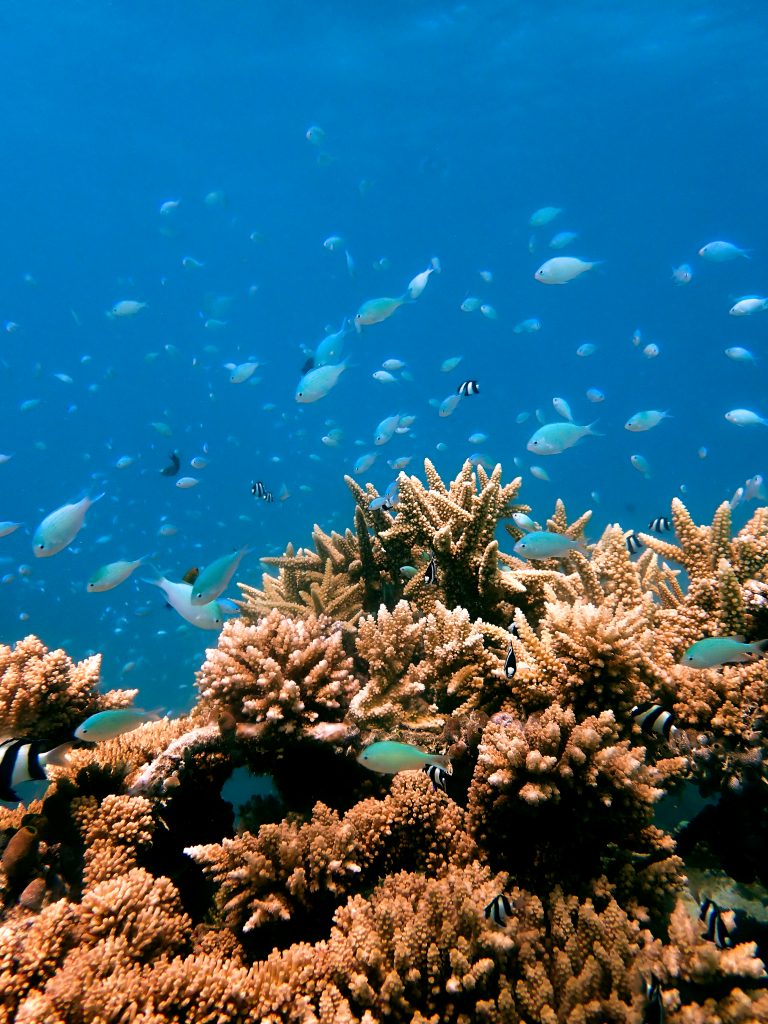
To discover more about the resort’s sustainability initiatives, join the Adopt a Coral programme, or plan a stay that supports reef conservation, visit sheratonmaldives.com or contact the reservations team at Sheraton.Maldives@sheraton.com.
Action
Sun Siyam Vilu Reef unveils expanded marine excursion portfolio

Sun Siyam Vilu Reef, part of the Sun Siyam Privé Collection, has introduced an expanded portfolio of water-based experiences designed to showcase the natural environment and marine life of the surrounding atolls. The enhanced programme combines exploration, activity and moments of calm, offering guests new ways to experience the Maldives through curated ocean journeys and personalised excursions.
Building on established activities such as Jet Car rides, SeaBob adventures and windsurfing, the resort has expanded its watersports offering to include private speedboat journeys and bespoke marine experiences. These additions are tailored for small groups seeking intimate and meaningful encounters with the ocean.
Available daily from the resort’s Watersports Centre, the new private speedboat excursions provide a personalised way to explore the hidden marine sites of Dhaalu Atoll. Designed for one to four guests, each journey offers flexibility and individual attention. Guests may choose from four-hour, five-hour or full-day itineraries, all of which include a freshly prepared barbecue lunch. From coral gardens to secluded sandbanks, the excursions highlight the region’s diverse marine landscapes.
The programme’s centrepiece is the Full Day Adventure Trip, which offers an extended exploration of key marine locations. Highlights include the Coral Garden, known for its biodiversity and reef formations; Turtle Point, where sea turtles are frequently sighted; and Nurse Shark Point, which provides opportunities to observe nurse sharks in their natural environment. The experience concludes with a beachside lunch on a private sandbank, set against uninterrupted views of the Indian Ocean.
For guests seeking a balance between activity and relaxation, the Waves of Adventure and Calmness experience combines a private two-hour snorkelling safari or Jet Ski safari with a full-body massage at the resort. The programme is designed to transition smoothly from ocean exploration to restorative island time, reflecting the relaxed pace that characterises Sun Siyam Vilu Reef.
As part of the Sun Siyam Privé Collection, Sun Siyam Vilu Reef continues to focus on personalised service and experiences rooted in the natural setting of the Maldives. Through its expanded watersports offering, the resort invites guests to engage with the marine environment while enjoying a sense of privacy, discovery and connection to the Maldivian seascape.
-

 News1 week ago
News1 week agoThe Ritz-Carlton Maldives, Fari Islands launches conservation programme for environmental observances
-
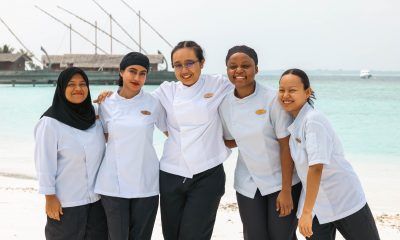
 Cooking1 week ago
Cooking1 week agoWomen at heart of kitchen: Milaidhoo Maldives marks International Women’s Day through gastronomy
-
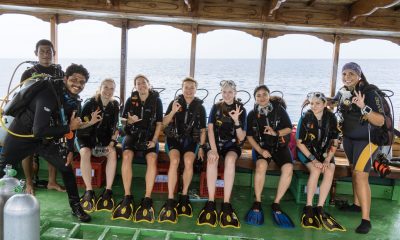
 Action1 week ago
Action1 week agoAtmosphere Foundation launches annual dive training scholarship for Maldivians
-

 Entertainment1 week ago
Entertainment1 week ago‘One festival, every sense’: Fari Islands Festival announces August 2026 return
-

 Family1 week ago
Family1 week agoEaster goes playful at The Standard, Maldives with week-long Angry Birds celebration
-
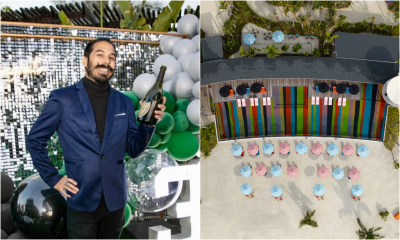
 Drink1 week ago
Drink1 week agoSO/ Maldives hosts tequila tasting and Lazuli Bar takeover for National Margarita Day
-
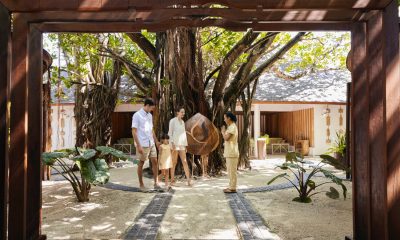
 Featured1 week ago
Featured1 week agoAncient banyan tree anchors spiritual experiences at Machchafushi Island Resort
-
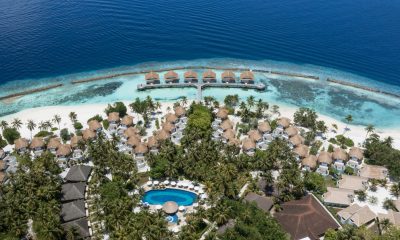
 Awards6 days ago
Awards6 days agoBandos Maldives earns Booking.com Traveller Review Award 2026



